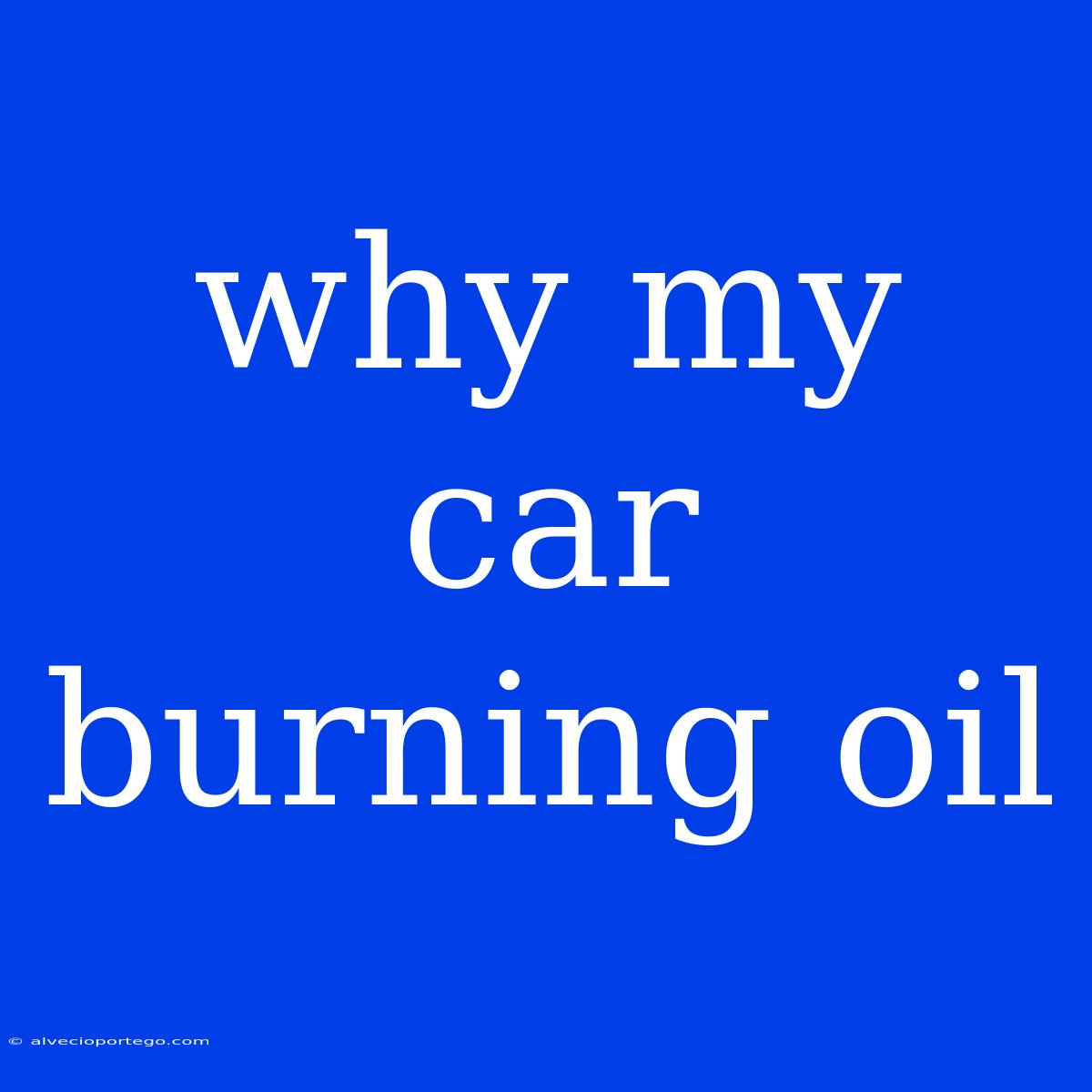Why Is My Car Burning Oil?
If you're noticing blue smoke coming from your car's exhaust or a drop in your oil level, your car may be burning oil. This is a common problem that can be caused by a variety of factors, some more serious than others. Here's a breakdown of the most common reasons why your car might be burning oil:
1. Worn Valve Stem Seals:
- What they are: These seals sit on top of the valve stems and prevent oil from leaking into the combustion chamber.
- How they cause oil burning: Over time, these seals can become hardened and brittle, leading to leaks. When oil leaks past the seals and into the combustion chamber, it burns during the engine's operation, producing blue smoke.
- Severity: This is a relatively common and often manageable issue.
2. Worn Piston Rings:
- What they are: Piston rings sit within the grooves of the pistons and help create a seal between the piston and the cylinder wall.
- How they cause oil burning: Worn piston rings allow oil to seep past into the combustion chamber.
- Severity: This can be a more serious problem, potentially requiring an engine rebuild.
3. Worn Cylinder Walls:
- What they are: The cylinder walls are the smooth surfaces within which the pistons move.
- How they cause oil burning: Over time, the cylinder walls can wear down, creating gaps between the piston and the cylinder wall. This allows oil to leak past the piston rings and into the combustion chamber.
- Severity: This is a serious issue that often requires an engine rebuild.
4. Turbocharger Issues:
- What they are: Turbochargers are used in many modern cars to improve engine performance.
- How they cause oil burning: If a turbocharger's seals fail, oil can leak into the intake manifold and be burned in the engine.
- Severity: This can be a serious issue and may require turbocharger repair or replacement.
5. PCV Valve Issues:
- What they are: The PCV valve (Positive Crankcase Ventilation) helps control crankcase pressure and vent gases.
- How they cause oil burning: A faulty PCV valve can cause excess crankcase pressure, which can force oil past piston rings and into the combustion chamber.
- Severity: This is a relatively easy fix that involves replacing the PCV valve.
How to Diagnose the Problem:
- Inspect for Blue Smoke: Look for blue or bluish-gray smoke coming from the exhaust, especially when accelerating or at higher RPMs.
- Check Your Oil Level: Regularly check your oil level and make sure it's within the recommended range. If you notice a significant drop, it could be a sign of oil burning.
- Consult a Mechanic: For an accurate diagnosis, it's best to consult a qualified mechanic. They can perform a compression test and other diagnostic procedures to pinpoint the problem.
What to Do:
- Don't Ignore the Problem: Oil burning can lead to serious engine damage if left unaddressed.
- Seek Professional Help: A mechanic can accurately diagnose the problem and recommend the most appropriate course of action.
- Address the Root Cause: Depending on the source of the oil burning, you may need to replace seals, piston rings, or even rebuild the engine.
By understanding the common causes of oil burning and taking the right steps, you can keep your car running smoothly and efficiently.

